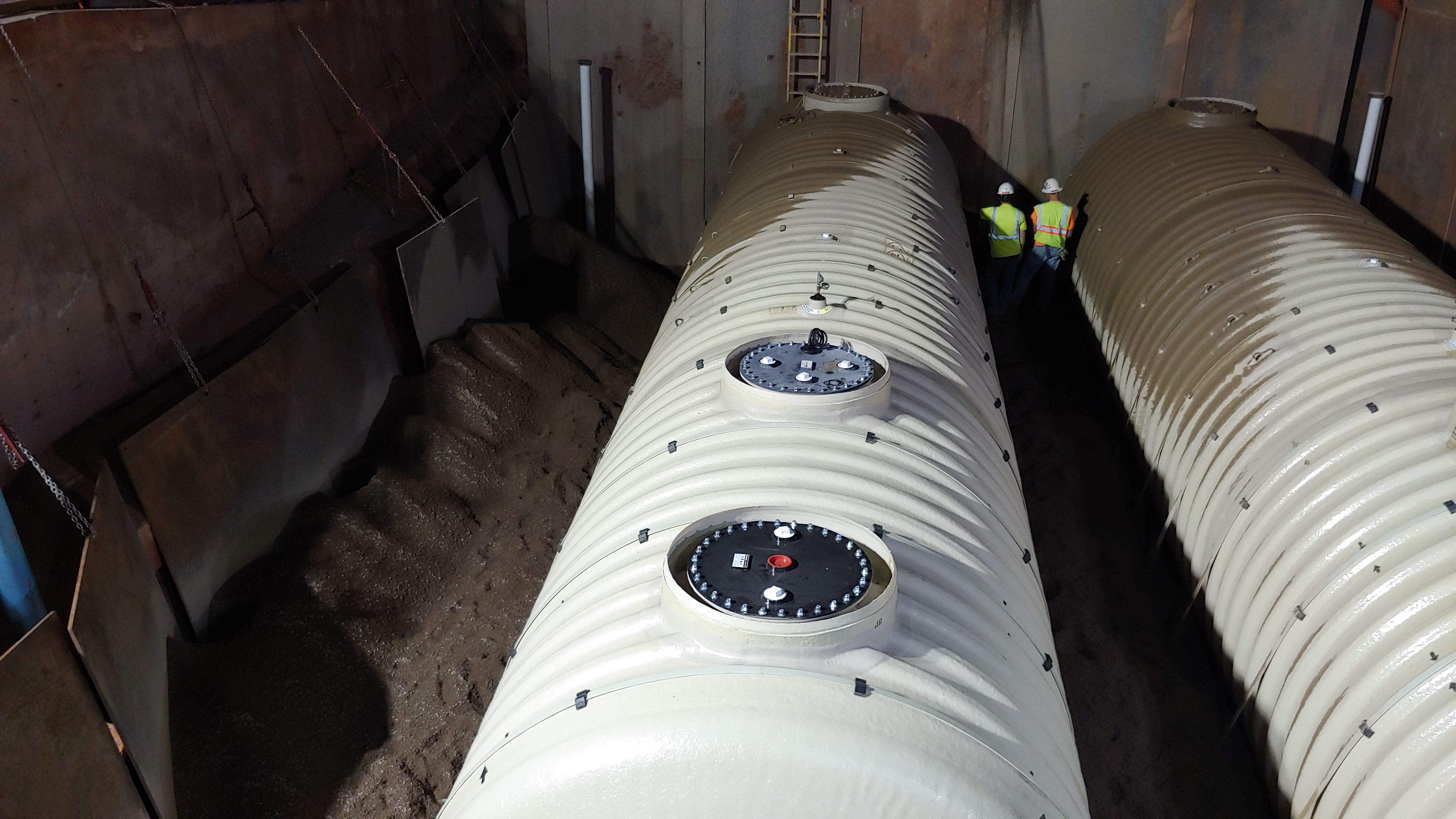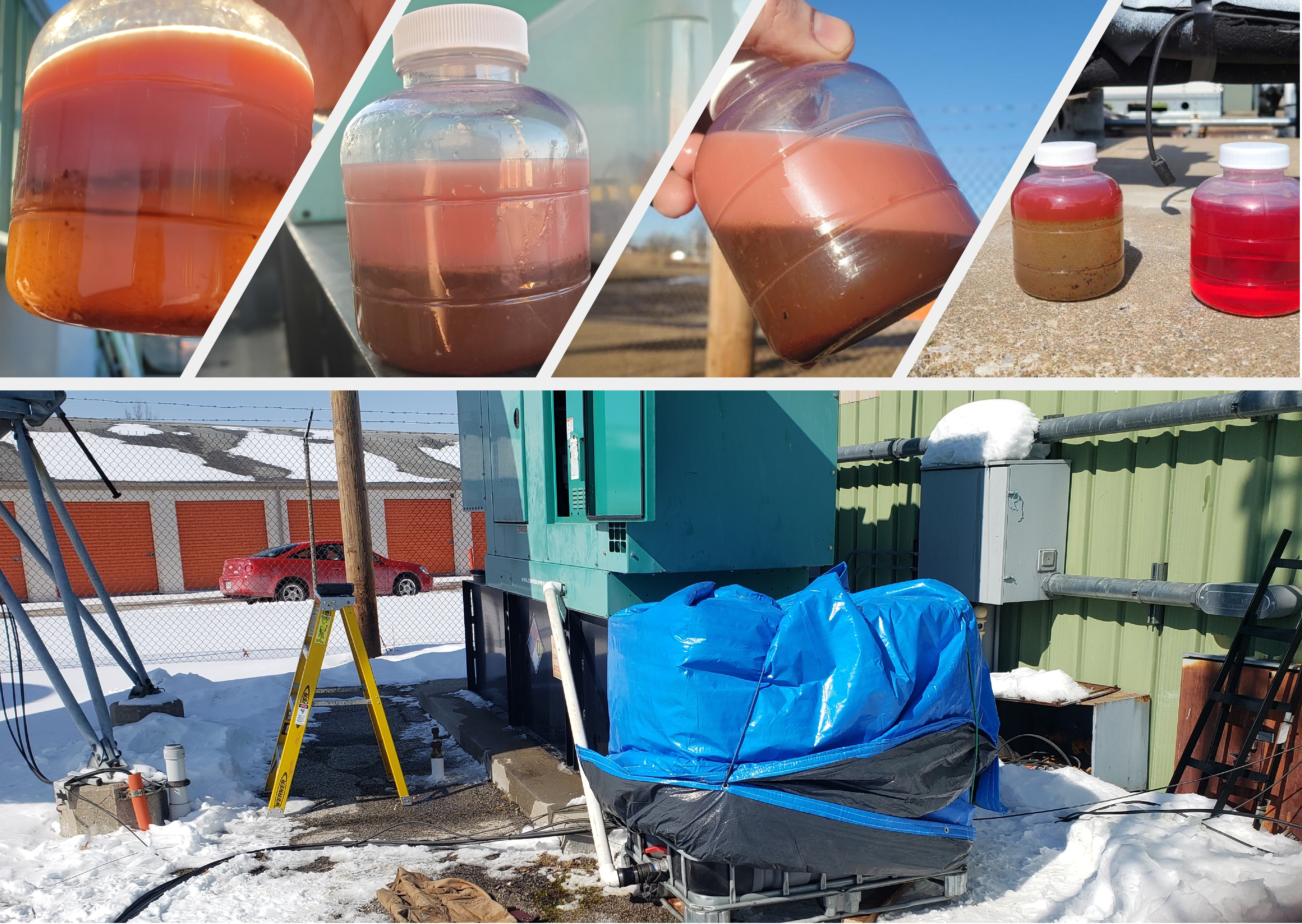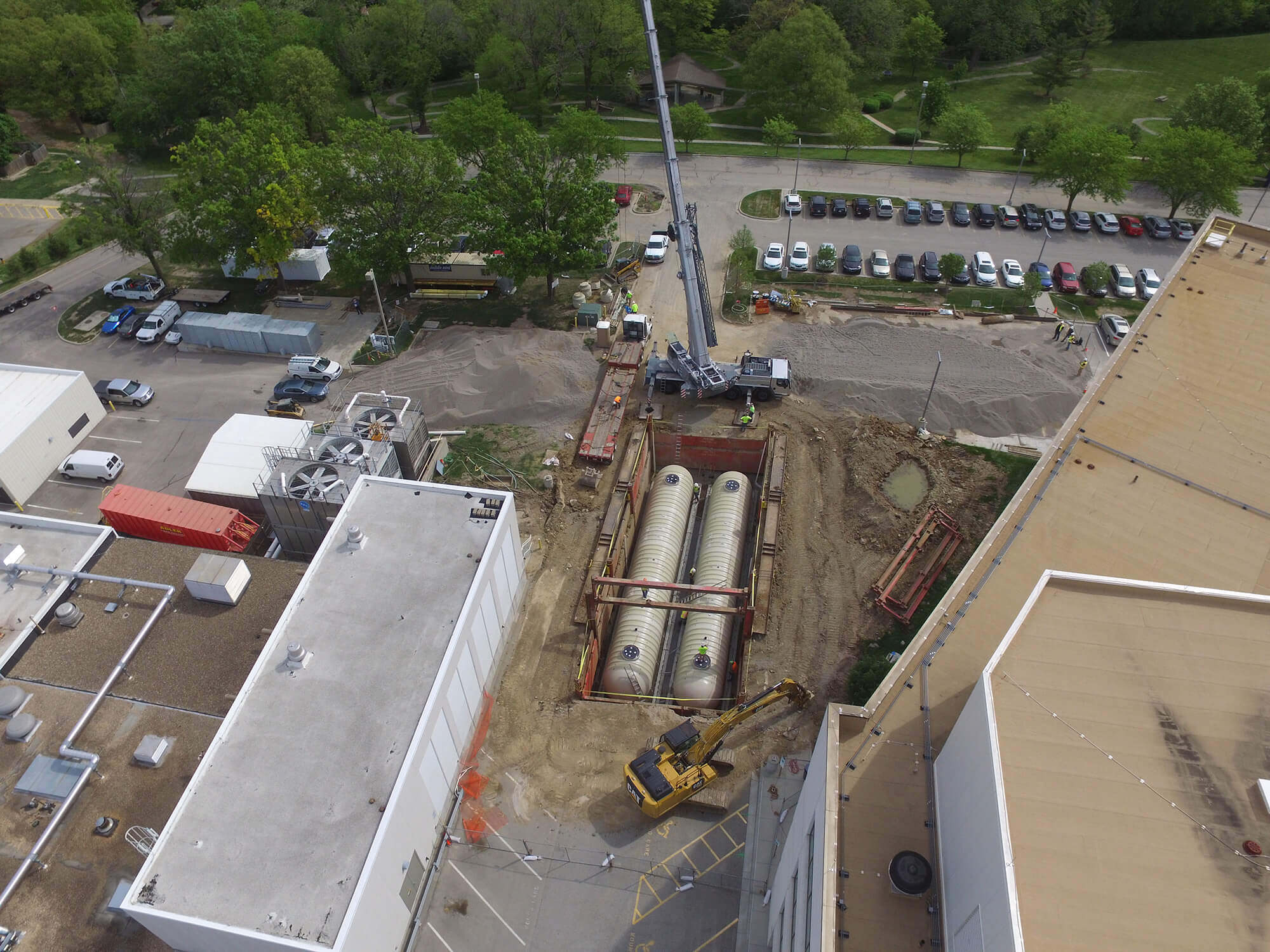
When it comes to powering critical facilities like hospitals, data centers and telecom hubs, reliable fuel systems are non-negotiable. These organizations can’t afford a power outage—and neither can the people who depend on them.
At OCCU-TEC, we specialize in providing end-to-end services for critical fuel systems, from initial installation to long-term maintenance to final decommissioning. Whether keeping emergency generators fueled and ready or safely removing aging tanks, we’re built to handle the entire lifecycle with compliance, safety and operational excellence in mind.
Here’s a closer look at what it takes to manage critical fuel systems—and how OCCU-TEC keeps your operations protected every step of the way.
Understanding Critical Fuel Systems

Critical fuel systems are designed to support emergency generators for facilities that must maintain power under any circumstance. Think of hospitals that can’t lose electricity mid-surgery, data centers hosting cloud services relied upon worldwide, or telecom facilities tied directly to 911 emergency dispatch centers.
Any downtime can lead to serious consequences, including operational disruptions, financial penalties, regulatory fines and even legal action. That’s why proper installation, maintenance and compliance are so critical—and why organizations trust OCCU-TEC to get it right.
Setting the Foundation: Installation and Design
A properly designed fuel system starts with one important question: how long does the facility need to operate independently before receiving a fuel delivery? Some industries, like telecom, are federally required to maintain a minimum of 48 hours of onsite fuel supply.

From there, system design considers several factors:
- Fuel capacity requirements based on generator runtime expectations
- Site conditions, determining if tanks should be installed aboveground or underground
- Day tank systems, which deliver fuel directly to the generator through an automated pumping and control setup
- Fuel tank monitoring and leak detection need
- System scalability to handle future load demands or multiple generator units
OCCU-TEC partners with clients during the design phase to engineer fuel systems that meet regulatory standards, maximize reliability and fit the realities of their site.
Keeping Systems Running: Inspection, Testing, and Maintenance
Installing a critical fuel system is just the beginning. Ongoing inspection, testing and maintenance are essential to ensuring performance when it matters most.
For proactive customers, OCCU-TEC recommends:
- Annual inspections and testing of pumps, controls, piping, valves and monitoring equipment
- Preventive maintenance services to catch and repair small issues before they become system failures
- Upgrades for aging or obsolete parts, ensuring compatibility with current industry standard
- Annual regulatory compliance inspection and testing
- Annual fuel sample analysis
Neglecting maintenance—even for a few years—can expose facilities to major risks, from fuel leaks, fuel degradation, unattended or undiagnosed alarms/error codes from monitoring or pump control equipment, quickly leading to generator failure during emergencies. Unfortunately, maintenance budgets are often the first thing cut during mergers or tough financial periods, putting facilities at even greater risk.
That’s why OCCU-TEC offers flexible service programs tailored to each client’s needs. Whether we’re providing annual inspections, full maintenance management, or assisting in major system upgrades, we’re committed to keeping critical infrastructure protected.
Navigating Compliance: Protecting Your Operations and Reputation
Compliance in the fuel system world isn’t optional—it’s mandated by agencies like the EPA, FCC and state regulatory bodies. Facilities that fail to meet compliance standards risk steep penalties and, worse, compromised public trust.
Key compliance considerations include:
- Monthly leak monitoring and documentation (required by the EPA)
- Annual testing and certification of underground tank monitoring systems
- Triannual testing for critical components like spill buckets, overfill prevention devices and underground piping
- Proper insurance and registration of storage tank
- Creation of an onsite fuel tank binder to host all important documents all in one place.
At OCCU-TEC, we help clients stay ahead of compliance by offering flexible service models. Some organizations prefer to handle monthly inspections internally while partnering with us for annual and triannual testing. Others outsource everything to us under an end-to-end program, where we handle inspections, maintenance, documentation and compliance reporting seamlessly.
Our goal? To ensure that when an inspector shows up, clients can confidently hand over a complete binder—with no gaps, no questions and no issues.
Emergency Support: Rapid Response When It Matters Most
If a critical fuel system goes down, every second counts. OCCU-TEC offers rapid response support through:
- Phone troubleshooting, leveraging detailed knowledge of client systems, past service records and site photos to guide onsite staff through first-line fixes
- Onsite dispatch from our own teams or carefully vetted subcontractors when hands-on support is needed
- Specialized expertise in day tanks, generator systems and automated control equipment, setting us apart from general petroleum service companies focused on gas station operations
In emergencies, OCCU-TEC doesn't just send someone who knows fuel tanks—we send specialists who know exactly how to restore generator fueling systems and get facilities back online safely and quickly.
End of Life: Decommissioning and Critical Fuel System Removal Done Right
Eventually, critical fuel systems need to be safely removed—whether due to required and costly upgrades, site closures or new regulations. Decommissioning these systems requires careful planning, strict compliance and environmental stewardship.
OCCU-TEC’s process includes:
- Notification, permitting and closure reporting with state and local authorities
- Safe fuel removal and recycling, minimizing disposal cost
- Air displacement and vapor management to prevent explosion hazards
- Tank cleaning, confined space entry and certified disposal
- Soil and groundwater sampling (for underground tanks) to assess any environmental contamination
- Backfilling and site restoration to leave the property safe and ready for its next us

If contamination is found during critical fuel system removal, OCCU-TEC manages the next phase too—developing remediation plans, installing monitoring wells and working closely with regulatory agencies until a No Further Action Letter is secured.
In short: We don’t just remove tanks. We close the environmental loop responsibly, protecting both our clients and the communities they serve.

The OCCU-TEC Difference
What sets OCCU-TEC apart? It’s our ability to be truly turnkey.
From new installation to annual maintenance to full decommissioning, we have the expertise, tools and nationwide reach to support critical fuel systems across their entire lifecycle. Our field teams are equipped with specialized equipment—including fuel sampling equipment, testing trailers, ultrasonic testing devices, confined space entry equipment, photoionization detectors and other environmental monitoring instruments—to get the job done safely and efficiently.
And whether clients need a full-service program or a hybrid solution that fits their in-house capabilities, OCCU-TEC brings flexibility, deep industry knowledge and a relentless commitment to keeping critical operations up and running. Contact us today to learn more.

 OCCU-TEC, Inc.
OCCU-TEC, Inc.



